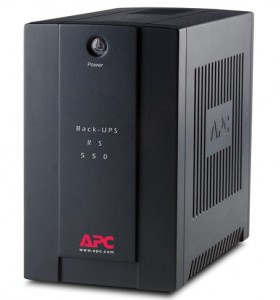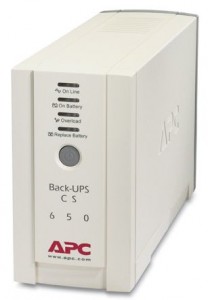UPS stands for Uninterruptible Power Supply
It is an electrical apparatus that provides emergency power to a load when the input power source, typically mains power, fails. An UPS difference from an emergency or standby generator or an auxiliary power system in that it will provide near-instantaneous protection from input power interruptions , by supplying energy stored in a flywheel or batteries . The on-battery runtime of most uninterruptible power sources is relatively short (a few minutes) but sufficient to properly shut down the protected equipment or start a standby power source .
An UPS is typically used to protect computers, data centers, telecommunication equipment or other electrical equipment where an unexpected power disruption could cause injuries, fatalities, serious business disruption or data loss. UPS units range in size from units designed to protect a single computer without a video monitor (around 200 VA rating) to large units powering entire data centers or buildings.
UPS has two main protective functions:
1. It takes over your computer power supply when then main electricity fails or worse goes into a state known as a brown out. This is where the supply falls to an unacceptably low level and this may cause your computer to crash and can lost or corrupted data .
2. It filters the mains supply to remove spikes which can cause power failures . Spikes can be a thousand volts or more that last for a small amount of time. These spikes can cause real damage to your computer .

